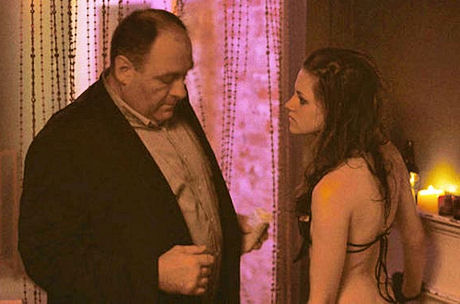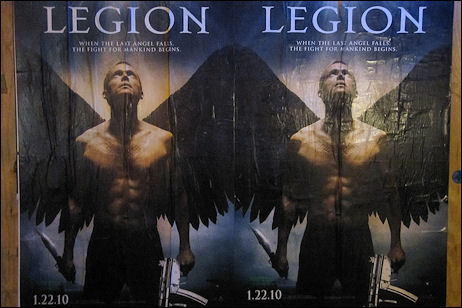The Golden Globe awards are happening Sunday night. Awards Daily‘s Sasha Stone has asked for GG predictions for a poll she’s doing. I sent the following minus the “Why” and “Personal Preference” portions:
Best Motion Picture, Drama. HE prediction: Avatar? (Lightstorm Entertainment; Twentieth Century Fox). Why: Wow Factor, Money Avalanche, 3D Game-Change. Personal Preference: The Hurt Locker.
Best Performance by an Actress in a Motion Picture, Drama. HE prediction : The Blind Side‘s Sandra Bullock. Why: Bullock is more of a Globey Globey-type girl than Carey Mulligan. Personal Preference: An Education‘s Carey Mulligan.
Best Performance by an Actor in a Motion Picture, Drama. HE prediction : Crazy Heart‘s Jeff Bridges. Why: Convincing alcoholic sloth, career achievement award. Personal Preference: A Single Man‘s Colin Firth.
Best Motion Picture, Comedy Or Musical: HE prediction :
(500) Days Of Summer? (Watermark Pictures; Fox Searchlight Pictures). Why: It’s easily the best of the nominees. Personal Preference: (500) Days of Summer.
Best Performance by an Actress in a Motion Picture, Comedy Or Musical. HE prediction : Julie & Julia‘s Meryl Streep. Why: Gunboat Meryl factor. Personal Preference: Nine‘s Marion Cotillard.
Best Performance by an Actor in a Motion Picture, Comedy Or Musical. HE prediction : A Serious Man‘s Michael Stuhlbarg. Why: None of the other contenders — Informant‘s Matt Damon, Nine‘s Daniel Day-Lewis, Sherlock Holmes‘ Robert Downey Jr., 500 Days‘ Joseph Gordon-Levitt — have built up any steam. Complicating Factor: Stuhlbarg plays a wimp. Personal Preference: Stuhlbarg.
Best Performance by an Actress In A Supporting Role in a Motion Picture. HE prediction : Badass Mo’nique, Precious: Based On The Novel Push By Sapphire. Why: Please…this is hard for me. Personal Preference: Up In The Air‘s Vera Farmiga.
Best Performance by an Actor In A Supporting Role in a Motion Picture. HE prediction : Inglourious Basterds‘ Christoph Waltz. Why: The multitudes have spoken — settled issue — no choice in the matter. Personal Preference: The Messenger‘s Woody Harrelson.
Best Animated Feature Film. HE prediction : Fantastic Mr. Fox (?American Empirical Picture, Twentieth Century Fox). Why: Fox has been gaining, Up has been static. Personal Preference: Fox because of the Willis O’Brien methodology.
Best Foreign Language Film. HE prediction : Broken Embraces (Spain, Sony Pictures Classics). Why: Because it’s far and away the best of the nominees? Personal Preference: Pedro.
Best Director, Motion Picture. HE prediction : Kathryn Bigelow, The Hurt Locker. Why: Decided, locked. Personal Preference: Biggy.
Best Screenplay, Motion Picture. HE prediction : The Hurt Locker‘s Mark Boal. Why: The straight-from-life factor. Boal embedded, took notes, put it all together. Personal Preference: Boal.
Best Original Score, Motion Picture. HE prediction : Avatar‘s James Horner.
Best Original Song, Motion Picture. HE prediction : “I Want To Come Home” from Everybody’s Fine (?Music & Lyrics by Paul McCartney). Why: The Beatles…hello?








